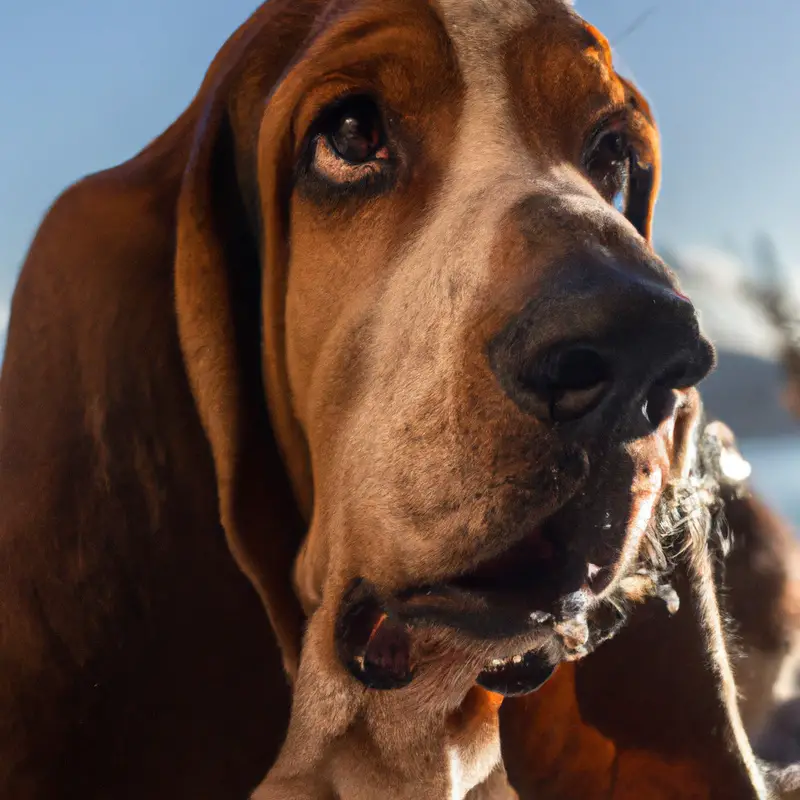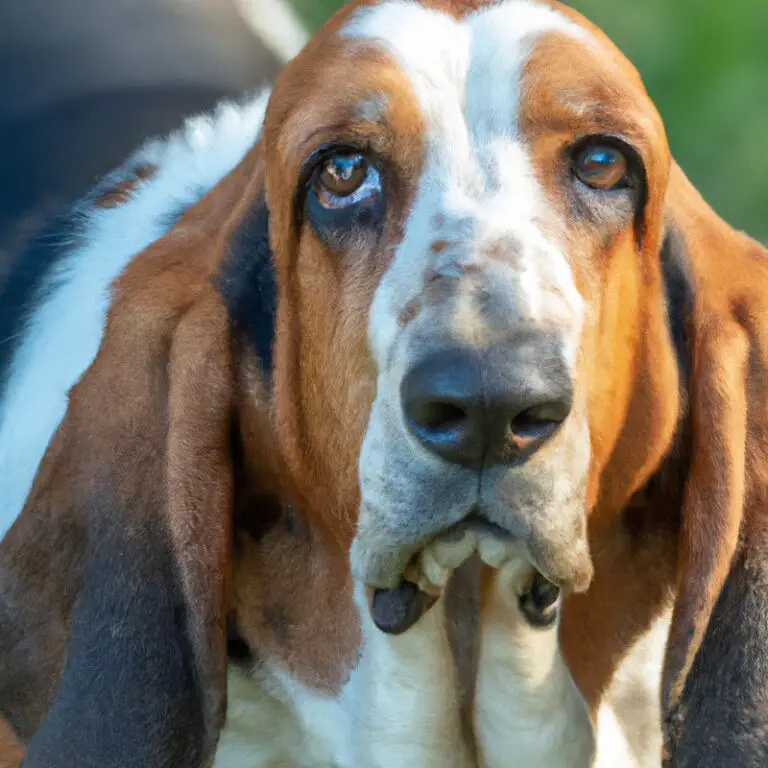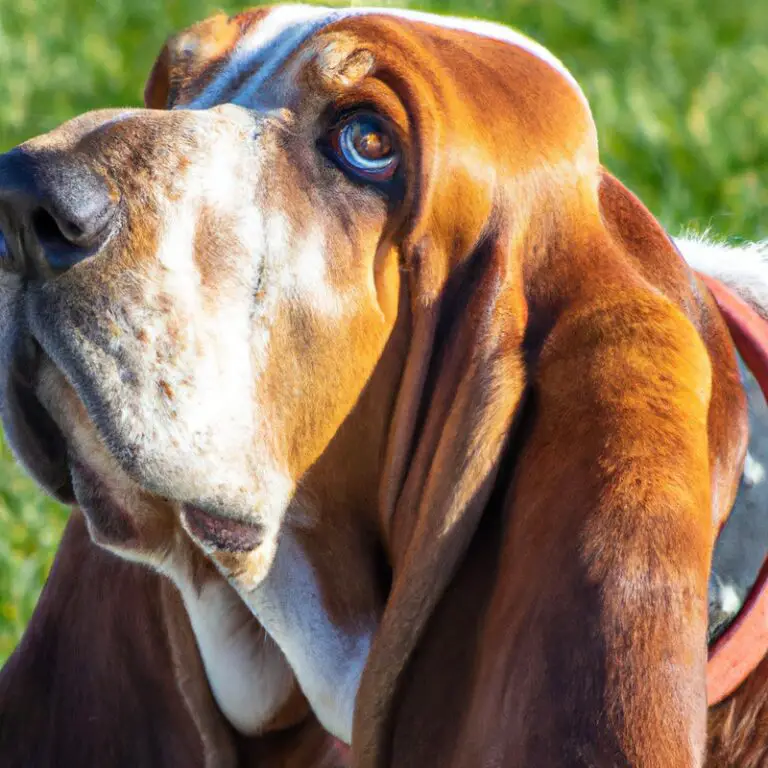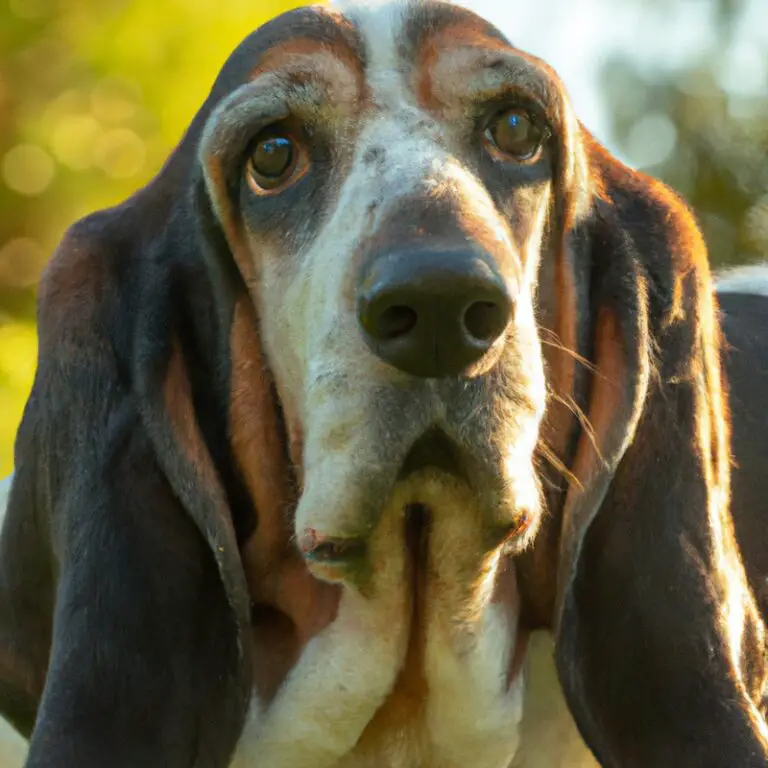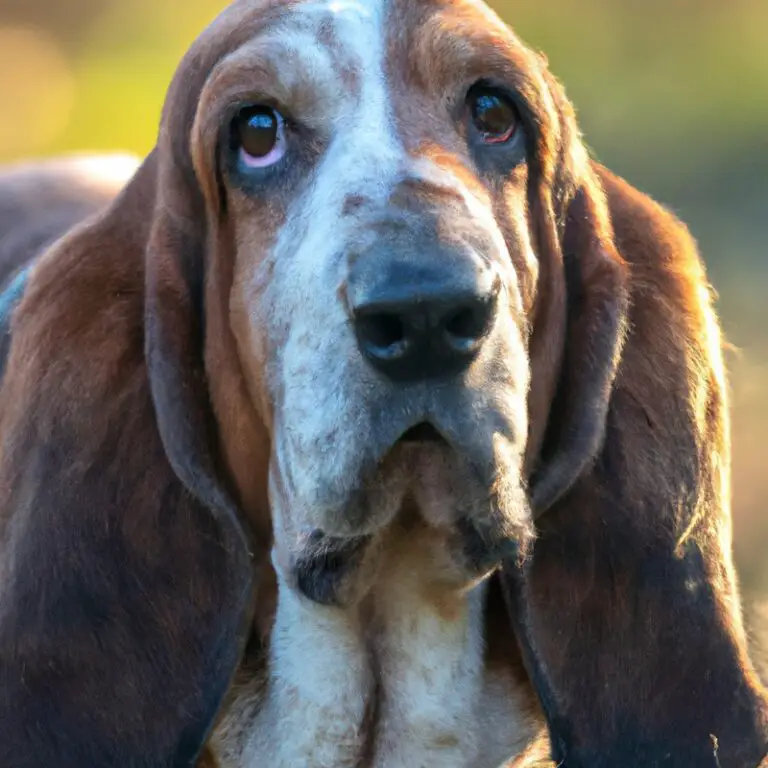Are Basset Hounds Good For People With Allergies?
Key Takeaways:
- Basset Hounds are not hypoallergenic dogs and may trigger allergies in some people.
- They have a short coat that can minimize allergen buildup, but they still shed and produce dander.
- Regular grooming and cleaning can help reduce allergens and manage allergic reactions.
- Individuals with severe allergies should consult with healthcare professionals before getting a Basset Hound.
Do you have an allergic reaction every time you’re near a furry friend? Well, you’re not alone.
Allergies can really put a damper on the joy of having a pet.
But fear not! There might be a solution for you. In this article, we’ll explore whether Basset Hounds, with their adorable droopy ears and soulful eyes, are a good match for people with allergies.
We’ll delve into the characteristics of these lovable hounds, their hypoallergenic qualities, and some helpful tips for managing allergies around them.
Plus, we’ll explore some alternative options if Basset Hounds aren’t the best fit for you. So, let’s find out if Basset Hounds can be allergy-friendly companions!
| Aspect | Basset Hounds |
|---|---|
| Allergy-friendly | No |
| Shedding | High |
| Dander production | High |
| Size of dog | Medium to large |
| Hypoallergenic | No |
| Exercise need | Low |
| Tendency to drool | High |
| Temperament | Friendly, laid-back |
What are allergies and how do they relate to pets?
Understanding allergies
Understanding allergies can help us better navigate and manage their impact on our lives.
Allergies occur when our immune system reacts to substances that are usually harmless, such as pollen, pet dander, or certain foods, as if they were harmful invaders.
This exaggerated immune response can lead to a range of symptoms, including sneezing, itching, watery eyes, and even difficulty breathing.
It’s important to identify and avoid allergens that trigger our allergies, and working with healthcare professionals to develop an appropriate treatment plan can greatly improve our quality of life.
Common allergens
Common allergens that can trigger allergic reactions in people include pet dander, dust mites, pollen, mold, and certain foods.
Pet dander, such as from cats and dogs, is a common cause of allergies.
Dust mites can be found in bedding, upholstery, and carpeting.
Pollen from trees, grass, and weeds can cause seasonal allergies.
Mold spores thrive in damp areas of the home.
Certain foods, like peanuts, shellfish, and dairy products, can also cause allergies.
It’s important to identify and manage exposure to these allergens to minimize allergy symptoms.
Allergies to pets
Allergies to pets can be bothersome for individuals who are sensitive to certain allergens in pet dander and saliva. These allergies can cause symptoms such as sneezing, coughing, itching, and difficulty breathing.
Common pet allergens include proteins found in skin flakes, urine, and saliva.
It’s important for pet owners to understand that no breed is completely hypoallergenic, so it’s essential to manage allergies by keeping a clean environment, regular grooming and bathing, and minimizing contact with allergens. Consideration should also be given to alternative hypoallergenic dog breeds or non-shedding pets if allergies persist.
What are the characteristics of Basset Hounds?
Physical attributes of Basset Hounds
Basset Hounds are known for their distinct physical features. They have long, droopy ears that hang down by their sides and big, soulful eyes.
Their bodies are low to the ground and they have short, sturdy legs.
Bassets have loose skin and a wrinkled face, adding to their unique appearance. They are a medium-sized breed, typically weighing between 40 and 60 pounds.
Their coats are short and dense, coming in various colors including tricolor (black, white, and tan) and lemon and white.
Overall, Basset Hounds have a charming and endearing look that many people find irresistible.
Temperament and behavior of Basset Hounds
Basset Hounds are known for their laid-back and friendly temperament. They are generally good-natured, patient, and tolerant dogs.
Bassets are loyal and affectionate companions who enjoy spending time with their families.
They have a strong sense of smell and love to explore, so it’s important to keep them on a leash or in a secure area. Bassets can sometimes be stubborn, so consistent and patient training is important.
They are generally good with children and other pets, but early socialization is recommended.
Bassets are moderate energy dogs and enjoy daily walks or playtime.

Basset Hound hypoallergenic qualities
Shedding and dander production
Basset Hounds, like most dogs, shed their fur regularly. This shedding can contribute to the presence of dander, which is a common allergen for people with allergies.
Basset Hounds have a dense, short coat that may release more dander compared to some other breeds.
While they are not considered hypoallergenic, there are strategies to manage the shedding and dander production. Regular grooming and bathing can help minimize the amount of loose hair and dander in the environment.
Additionally, keeping a clean living space and minimizing contact with allergens can also help reduce allergic reactions.
Basset Hound saliva and allergens
Basset Hounds have saliva that contains allergens, which can trigger allergic reactions. When a Basset Hound licks themselves or others, the saliva can spread on surfaces and objects in the environment, including furniture and clothing.
These allergens can be airborne and cause symptoms like sneezing, itching, and watery eyes.
It’s important to note that every individual’s sensitivity to allergens can vary, so some people may experience more severe reactions than others. It’s a good idea to consult with an allergist or visit a Basset Hound breeder to assess your potential allergic response to the breed.
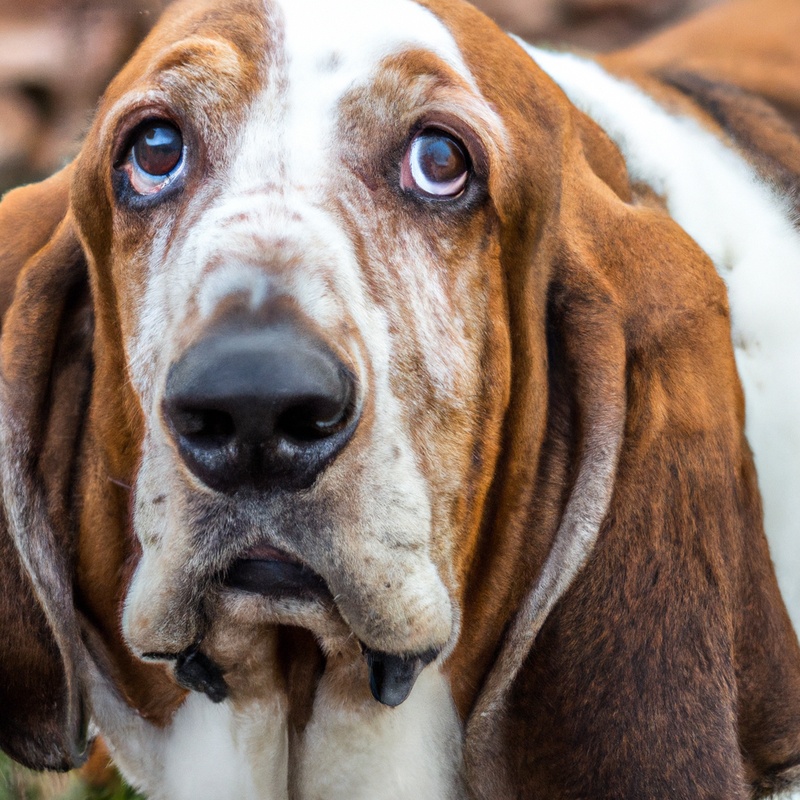
Possible allergic reactions to Basset Hounds
Basset Hounds are not hypoallergenic, meaning they can trigger allergic reactions in some individuals. People with allergies may experience symptoms such as sneezing, itching, watery eyes, and even asthma attacks when exposed to Basset Hounds.
This is because Basset Hounds produce dander, which is a common allergen.
Additionally, their saliva can also cause allergic reactions. It’s important to consider this if you or someone in your household has allergies before getting a Basset Hound.
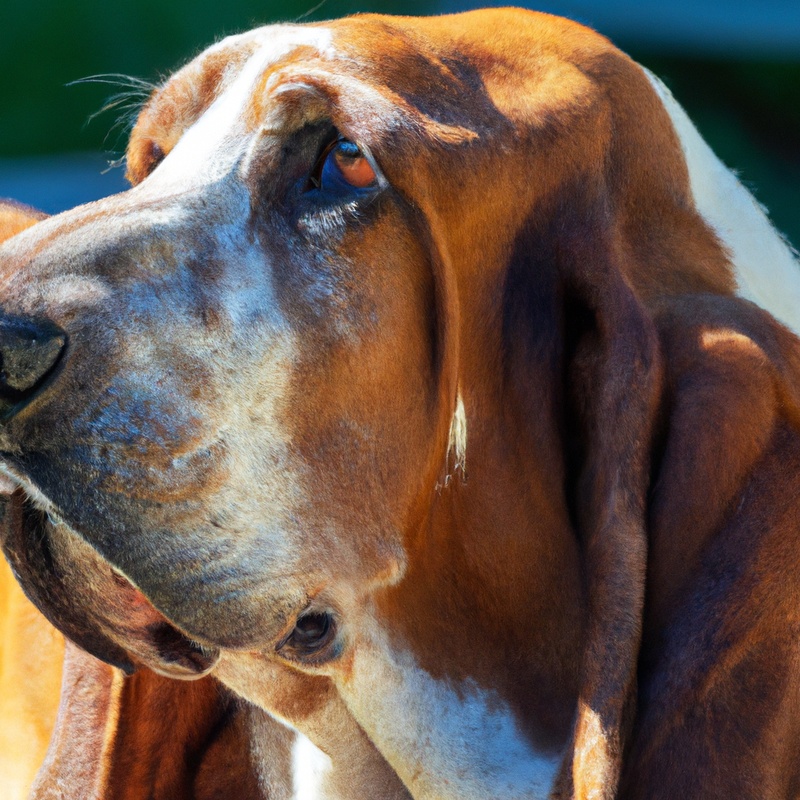
Tips for managing allergies around Basset Hounds
Keep a clean environment
One important way to manage allergies around Basset Hounds is to keep a clean environment.
Regularly cleaning your home can help minimize allergens like pet dander and saliva.
Here are some tips:
- Vacuum frequently: Vacuuming helps remove pet hair and dander from carpets, rugs, and upholstery.
- Use a HEPA filter: Consider using a vacuum cleaner with a HEPA filter, as it can trap small particles and allergens.
- Dust regularly: Dust surfaces in your home with a damp cloth or use a microfiber duster to avoid spreading allergens into the air.
- Wash bedding and soft furnishings: Wash your dog’s bedding, blankets, and any other soft furnishings regularly to remove allergens.
- Keep the Basset Hound’s area clean: Clean your dog’s living area regularly, including their bed, toys, and food bowls.
By keeping a clean environment, you can help reduce allergens in your home and make it more comfortable for both you and your Basset Hound.
Regular grooming and bathing
Regular grooming and bathing are essential for managing allergies around Basset Hounds.
Here’s why:
- Grooming: Brushing your Basset Hound regularly helps remove loose hair and dander, reducing the amount of allergens in your home.
- Bathing: Regular baths can help wash away allergens from the dog’s coat, making them less likely to cause allergic reactions.
- Use hypoallergenic shampoos: Opt for shampoos specifically designed for sensitive dogs to further minimize allergens.
- Cleaning their ears and paws: Keeping their ears and paws clean can help prevent the spread of allergens around your home.
Remember to consult with your veterinarian for specific grooming recommendations and best practices.
Minimizing contact with allergens
To minimize contact with allergens when living with a Basset Hound, there are a few simple steps you can take.
Firstly, try to keep the house as clean as possible by vacuuming regularly and wiping surfaces with a damp cloth.
Secondly, consider using allergen-proof covers for your furniture and bedding.
This can help reduce exposure to dander and other allergens.
Thirdly, wash your hands thoroughly after petting or handling your Basset Hound, and avoid touching your face until you do so.
And finally, consider designating certain areas of your home as “pet-free zones” to create allergen-free spaces for yourself.
Allergy-friendly alternatives to Basset Hounds
Other hypoallergenic dog breeds
If you’re looking for hypoallergenic dog breeds that may be a good fit for people with allergies, there are several options to consider. Some popular choices include the Poodle, Bichon Frise, Shih Tzu, Maltese, and Yorkshire Terrier.
These breeds typically produce less dander and are less likely to cause allergic reactions.
It’s important to note that every individual’s allergies are unique, so it’s always a good idea to spend time with a specific breed to see how you personally react before bringing them into your home.
Non-shedding pet options
If you’re looking for a pet that doesn’t shed much, there are several options available. Here are some non-shedding pet choices:
- Dogs: Consider breeds like the Poodle, Bichon Frise, or Portuguese Water Dog, as they have hair instead of fur and shed less.
- Cats: Certain cat breeds, such as the Devon Rex, Sphynx, and Russian Blue, are known for minimal shedding.
- Small Animals: Guinea pigs, rabbits, and reptiles like geckos or bearded dragons are low-shedding options.
- Birds: Finches, canaries, and parakeets are popular pet birds that typically don’t shed much.
Remember to research each pet’s specific care needs and consider any allergies or sensitivities you or your family members may have before bringing a new furry or feathery friend into your home.
Considerations for adopting a different pet
When considering adopting a different pet, there are a few important things to keep in mind.
First, consider the needs and lifestyle of the pet you are interested in.
Can you provide the necessary care, space, and exercise they require?
Second, think about any allergies or sensitivities you or your family may have.
It’s important to choose a pet that is hypoallergenic or has minimal dander and shedding.
Finally, consider the long-term commitment.
Pets require time, attention, and financial resources.
Make sure you are ready for the responsibility before bringing a new furry friend into your home.
Final Verdict
While Basset Hounds may not be completely hypoallergenic, they do have certain qualities that make them a viable option for people with allergies.
Their low-shedding coat and minimal dander production can help reduce allergen exposure.
Additionally, their gentle nature and affectionate temperament make them wonderful companions for those with allergies.
However, it is important to remember that every individual’s allergies are unique, and it is always recommended to spend time with a Basset Hound before making a decision.
If allergies persist, there are other hypoallergenic dog breeds and non-shedding pet options to consider.
Ultimately, managing allergies around pets requires a combination of cleanliness, grooming, and minimizing exposure to allergens.

